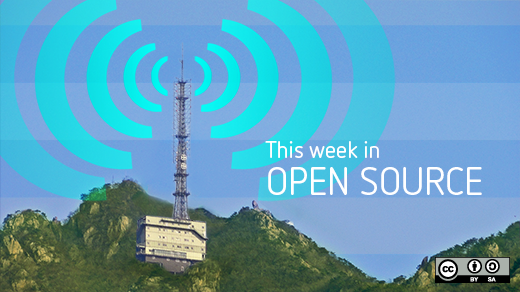Open source news for your reading pleasure.
July 5 - July 11, 2014
In this week's edition of our open source news roundup, we take a look at the Xiki shell Kickstarter, a Raspberry Pi competitor called HummingBoard, and more!
New version of Xiki shell launches on Kickstarter
Craig Muth, the creator of Xiki and its shell, xsh, created the tool for his own use. "Xiki brings the power of shell commands to everyone, and gives advanced shell users insane flexibility," says the Kickstarter page, and based on the preview video, it's pretty slick. The shell, which runs commands and browses files straight from a text editor, allowing a user to pipe content from one entity into another, needs an overhaul. So Muth is looking for $80,000 to finish it up, and once he's done, the whole thing will be released to the public as open source software.
Open source software powers flood research in Wales
The Welsh Citizen Observatory Web (or Cobweb, which... yeah, best name ever) is using open source software in the form of smartphone apps to get citizens' help in capturing data about flood risk management and monitoring. The fieldtrip-gb app and Cobweb flooding app are supplementing existing data and the organization hopes to put everything out on a publicly facing web portal, to "improve and stimulate research, improve governance, and increase citizen interest in local environmental concerns," according to Barry Evans, one of the researchers with Cobweb.
A new single-board computer contender arrives: HummingBoard
It looks like a Raspberry Pi—same basic shape, same size, same power supply—but it's packing a more powerful processor, along with support for a broader range of operating systems. It's called the HummingBoard, and it's got a 1GHz ARMv7 processor, OpenGL support, Gigabit Ethernet, mSATA and PCIe mini slots, HDMI, a camera interface, and powered USB. For a full breakdown, check out Ars Technica.
Open learning means something different for kids without access
In a revelatory piece over at Boing Boing, anthropologist and professor Mimo Ito writes about bringing open education resources to kids who have trouble benefitting from organizations like Code.org and Khan Academy. "It turns out... that these offerings are mostly serving already wired, well off, and highly educated families," she writes. Instead, the Connected Learning Alliance, in conjunction with the Scratch team at MIT are putting on a summer program targeted at kids who don't have access to these sorts of programs.
Pros and cons of open source
MongoDB's Matt Asay says that while open source is "as American as apple pie," there are some myths about the community and how open source development works and he wants to set the record straight. First, there's... well, there is no community. Rather, it's a community of communities. What he means is that you shouldn't expect your project to gather developers just because you invite them in. Dedicated—and this is a "nice way of describing developers who are paid to contribute," Asay says—contributors are rare and the bulk of open source projects don't find them. There are still plenty of reasons to choose the open source way, of course, but you'll have to head over to the article to read them.
Open Source News Break
Want to take our open source news on the go? Check out Bryan Behrenshausen's Weekly Open Source News Break audio podcast hosted at Hacker Public Radio.
A big thanks, as always, to Opensource.com summer intern Bryan Behrenshausen and moderators Scott Nesbitt and Robin Muilwijk for their help this week. I'm out at the beach next week, so you may see a lot more of them come Friday news roundup time!







Comments are closed.